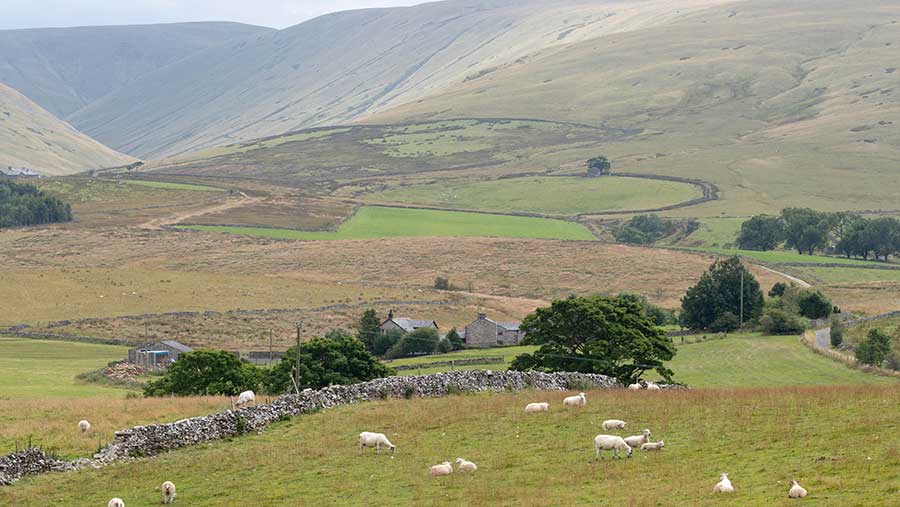Hill farmers still ‘shortchanged’ by latest Defra offer
 © Tim Scrivener
© Tim Scrivener Defra has been accused of “short-changing” hill farmers in England again with its latest offer for the uplands and moorlands under Environmental Land Management (ELM).
NFU data show that upland farming businesses lost on average about 37% of support payments in 2023, and this is set to get worse by the end of this year when Basic Payment Scheme (BPS) income will be slashed by 50%.
Many hill farming businesses are already entered into Higher Level Stewardship (HLS) or Countryside Stewardship (CS) schemes, and they had hoped to make up the loss of BPS income under the transition to ELM, including the Sustainable Farming Incentive (SFI).
See also: Upland farms face 37% funding hole under ELM, warns NFU
Upland farming advocate Julia Aglionby, a land agent and professor at the University of Cumbria, has carried out analysis of the latest ELM rates. She told Farmers Weekly they offered a mixed picture for hill farmers.
Prof Aglionby said hill farmers would be “disappointed” by the lack of changes in the CS payment rates for permanent grassland options GS2 and GS5.
By contrast, farmers eligible to apply for GS6: management of species-rich grassland, would be “delighted” with the £464 uplift from 1 January 2024, from £182/ha to £646/ha, for all new and existing scheme holders. But Prof Aglionby said GS6 was available on only a very small area, currently about 27,000ha across the whole country.
The payment rate for UP3 management of moorland remains at £55/ha, but UP5 moorland re-wetting has increased to £181/ha.
Higher Level Stewardship extensions
There are no payment uplifts for HLS extensions for those who opted to roll over their schemes for five years last year.
Prof Aglionby said there was “very little detail” to comment on with the new moorland options under the SFI, but payment rates at £20-66/ha were lower than what stakeholders had anticipated.
“The uplands are still being short-changed,” she said. “There are some good figures, but for the vast majority of hill farmers, this is not transformational.
“We are not going to see farm businesses having a significant improvement in their bottom line and we are not going to see nature improve significantly as a result, because these payments are not accessible to most people.
“If you are already in stewardship, you are not being offered much more and you are losing your BPS.”
Devil in the detail
NFU Uplands forum chairman Thomas Binns said the £464/ha payment uplift for GS6 was a “highlight”, adding that the “devil will be in the detail” with the new SFI options.
But he added: “Upland farmers are very much going to have to search through all the options for some solace because it’s not obvious where they are going to make up some of their lost BPS income.”
Exmoor hill farmer Robin Milton said some of the payment uplifts, such as GS6, were a “step in the right direction” and Defra was “starting to recognise the value of upland farming”.
But he added: “The BPS is disappearing in a lot of hill farming cases and if they still end up with the kind of agreements they had before, they will not be making any more money.
“We have got to look after the specific areas that are still seriously disadvantaged.”
